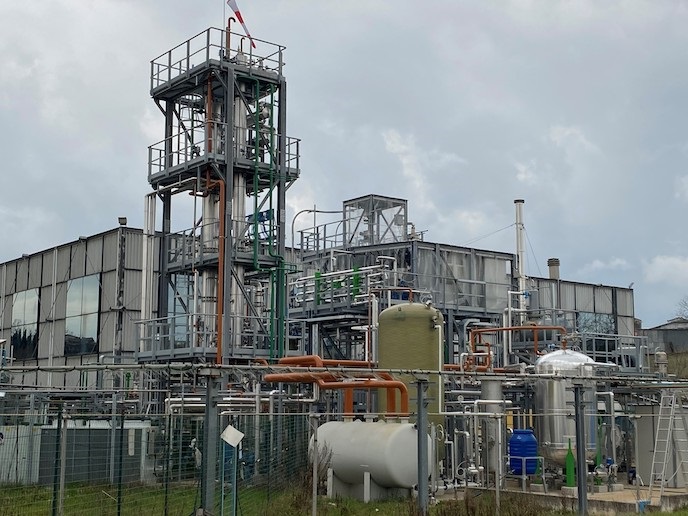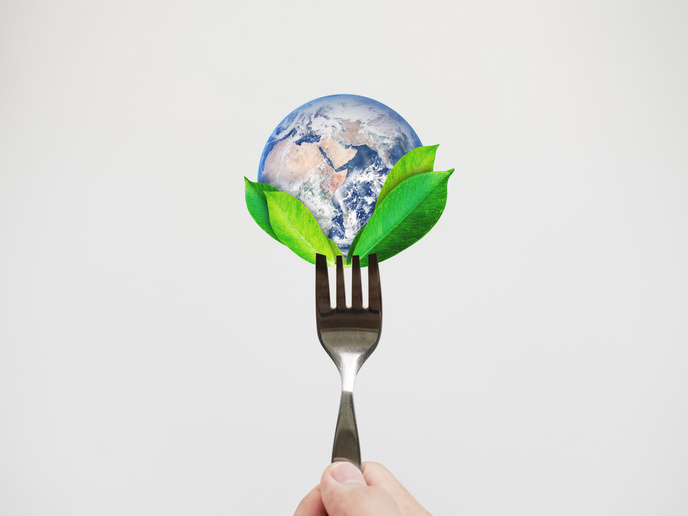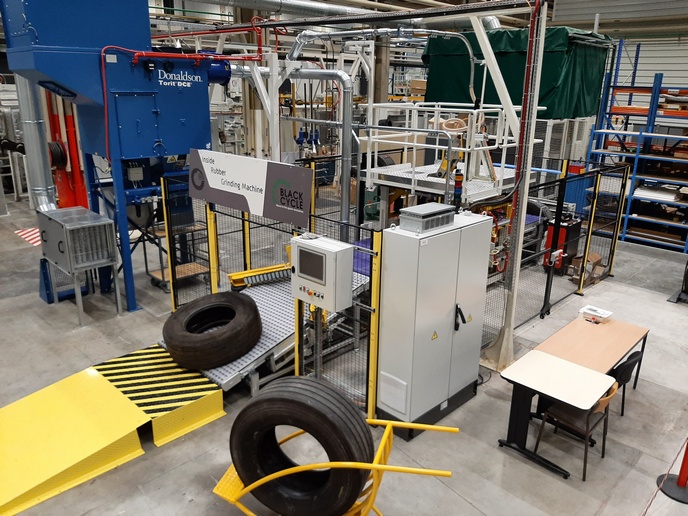Recycling plastic waste through innovative use of microwaves
According to PETCORE Europe, two out of three polyethylene terephthalate (PET) bottles are collected for recycling in Europe. They maintain the PET industry is 10 years ahead of the EU’s target and in some countries over 90 % of bottles are collected for recycling or reuse thanks to their deposit return schemes. The PET industry needs its bottles back in order to close the loop and has a clear objective in place to achieve 90 % collection of PET bottles by 2029. But once the bottles are returned, what then? The EU-supported DEMETO project is coming up with innovative answers. “Today waste PET from packaging or polyester textile fibres can be mechanically recycled but this treatment, repeated several times, decreases the characteristics of the materials, which in the end can only be disposed in landfill or incinerated,” explains the project’s manager, Bruno Manduca, based at NextChem, in Italy, the company behind the project. To make things more complicated, as he goes on to add, mechanical approaches can’t be applied to coloured bottles and textile fibres where polyester is blended with other fibres like cotton or nylon, since the fibres can’t be separated and sorted. “Other technologies, such as the thermal decomposition of materials at elevated temperatures, known as thermal pyrolysis, or techniques such as chemical and biological recycling processes, are currently under development but still not at industrial level.”
Quicker, cheaper recycling
The alkaline hydrolysis applied in DEMETO is a conventional process that is not applicable at industrial level due to the long reaction time. “The normal depolymerisation process occurs in 12-24 hours, mainly depending on the temperature,” says Manduca. This is where the company’s innovative approach, developed during the DEMETO project, comes in. “Combining microwaves assisted the reaction with the purification process, and this is the key element that enhances this technology,” notes Manduca. The main macroscopic effect of microwaves is to accelerate the reaction, giving the opportunity to decrease the depolymerisation time from several hours, to less than 10 minutes. “This allows us to shrink the size of the reactive unit, which means we can reduce capital investment. It’s more efficient too: microwaves enable an almost full conversion of the polymers fed to the depolymerisation process, so there is less waste.” DEMETO has also developed a robust and reliable purification process to recover monomers at a high purity level so that they can be reused in the creation of new ‘virgin’ polymers. “The system is less dependent on new resources since it reduces the need for more monomers from the petrochemical industry, resulting in less CO2 production. We are delighted to be furthering the goal of achieving a circular economy.” Both aspects, tested in the lab and at pilot scale, are currently being tested at a demo, scale plant. As Manduca notes, the dual approach represents a new route for PET recycling. “Combining the reaction helped by microwaves with the purification process is the key element that enhances this technology.” Thanks to an agreement with project partner gr3n, based in Switzerland, which owns the patent on microwave applications to PET depolymerisation, the plant will be active for 5 years. Different materials supplied by potential customers will be tested. The main stakeholders are included in the Industrial Advisory Board of the project, members of which include Unilever, Coca-Cola, Oviesse, Danone and Henkel.
Ambitious goal, successful outcome
The development of the project, in particular the design and the construction of the demo plant, was a great challenge for the team. They have worked hard for the last 4 years, concentrating their effort on the demo plant construction. “The ambition to design a plant started from an idea developed in lab. From there we coordinated a team of 14 European partners working to a tight project schedule. The construction phase and starting the business were, beyond any doubt, the more exciting phases of the last 4 years. Being able to compare with specialists from other countries on the same targets was sensational!” The team had to rise above the challenges presented by the pandemic. These mainly related to the delivery of materials and equipment which was delayed by months, and to the site construction activities which were held up by the situation. “Today, nearly at the start-up of the plant, we can say that we are fully satisfied with all the work done during the project and the collaborations with the various partners who were always proactive in giving their support when required,” Manduca says proudly.
Keywords
DEMETO, recycling, PET, Polyethylene terephthalate, microwaves, NextChem, gr3n







